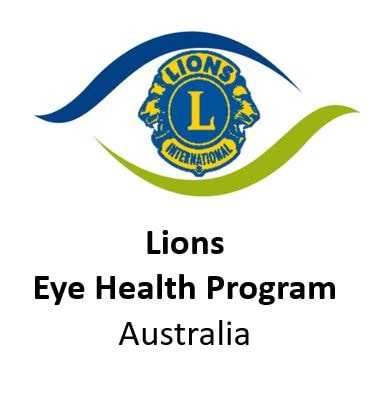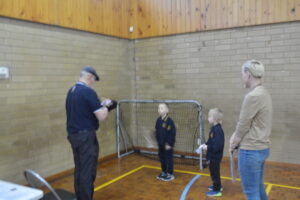A successful vision screening was held at the Kilburn Community Centre, primarily for the children of Afghan refugees. A total of 55 screening was conducted with 22 participants recommended for further investigation by a eye health professional. The screening was carried out by volunteers from the Glenside, Burnside and Golden Grove Lions clubs over a three-hour period from1:30pm. It was a significant test for the volunteers as we had only the minimum number of qualified screeners available and for most of them, it was their first screening since gaining their qualification.
We were able to provide printouts of the data from the Spot Vision camera and provide these to the parents along with the Parents results letters. This was well received by the parents who in general, appreciated receiving fully documented result of the screening.
The Lions Team was assisted by a small group of young volunteers from the Austral Asian church at Tusmore who originally requested that the screening be carried out. They helped to manage the flow of families through the screening process and provided support in the completion of the Parent Consent documentation. Other volunteers from the Kilburn Community Centre assisted with language issues which, fortunately were not significant. It must be noted that without this support, i doubt we could have managed the screening as effectively as it was.
There were several learning for the team and me as the Facilitator that will be addressed going forward. Some of these issues are.
Layout of the screening stations.
We set the stations in a format that appeared to work with one person going around the stations in an orderly sequence starting at Station1 and progressing to Station 4. In practice we found that to maintain and efficient flow of participants through the screening, this could not be maintained. As a results conflicts arose as people tried to move in different directions. It is now obvious that the Acuity Chart station must be away from the main traffic flow and preferably parallel to that flow.
Lighting at the location of the Spot Vision Camera.
This was not a surprise, we did try a couple of locations prior to starting the screening and initially obtained consistent results. However, this consistency could not be maintained, and we experience a number of cameras ‘Timed Out’ and other iconic elusive results. A couple of ‘Fixes’ were tried, the use of a paper ‘Visor’ to screen out the overhead light did have some success but didn’t work every time. More work is needed here.
Pre-screening briefing.
We did conduct a briefing before the screening started but is didn’t address all the required details. I propose to develop, with the help of the other volunteers a short checklist to ensure that all matters are dealt with at future briefings and that there are there is no uncertainty regarding any issues with the processes to be followed.
Post Screening De-Brief.
While it was my intention to carry out a de-brief after the screening, the duration of the event, and the somewhat chaotic ending to the afternoon meant that this didn’t happen. I propose that an item of the Pre-screening Briefing checklist will be to determine the time and location of the de-brief session before we start. and that everyone is aware of it.
The number of qualified screeners available.
We had 6 qualified volunteers available, and this meant that there was very little opportunity for individuals to take a break or to rotate through the stations. On this occasion this was exacerbated by the enthusiastic response to screening as seen by the number of participants which was greater than anticipated.
Overall, I believe the exercise went well, the team were and should be well satisfied with the outcome. The response from the refugee families was very positive as was that from the organising group from the Austral Asian church and the management of the community centre. I have high expectations that we will be involved with further screenings with the Austral Asian church and the Kilburn Community Centre in the future.



